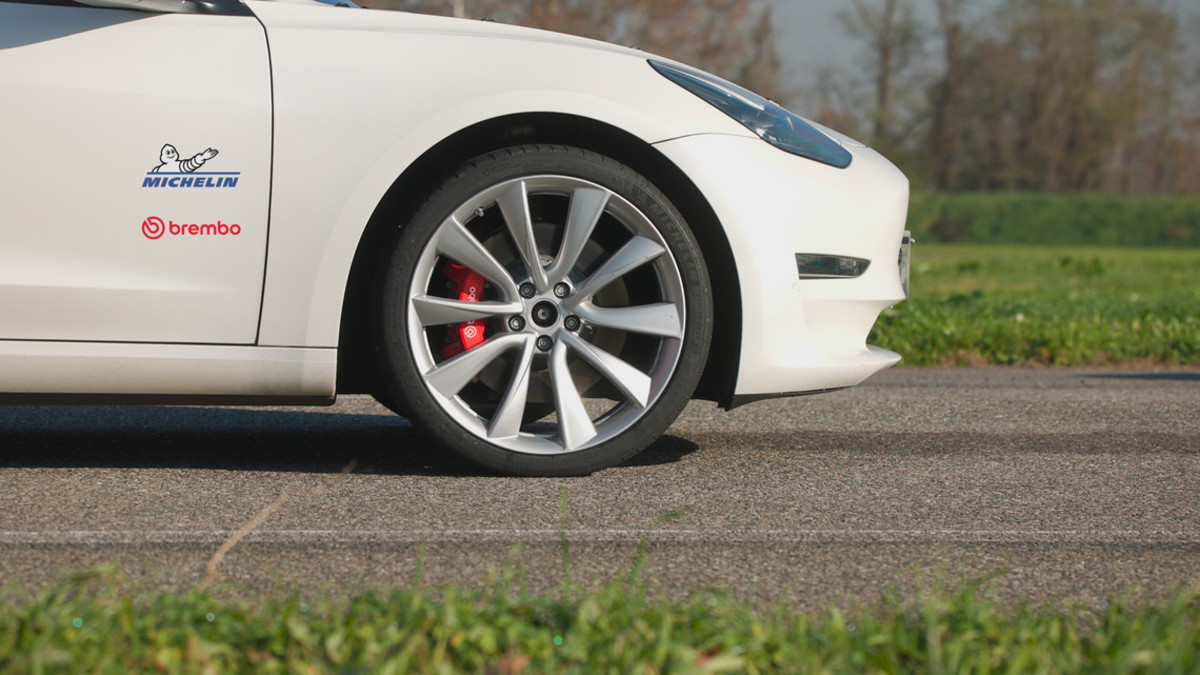
In a significant development for automotive performance and safety, Michelin and Brembo—trusted names in the tire and braking industries—have announced a strategic partnership aimed at pioneering the next generation of vehicle safety technology. This collaboration will leverage Michelin’s advanced software to provide real-time tire grip information directly to Brembo’s AI-driven SENSIFY braking system.
The Evolution of Tire Management: Michelin’s Cutting-Edge Software
Michelin has developed an innovative suite of software solutions equipped with algorithms and sensors that monitor key metrics such as tire wear, load, and grip. These applications, aptly named SmartWear, SmartLoad, and SmartGrip, are designed to ensure optimal tire performance in any condition.
“We are excited to partner with an industry leader like Brembo. Our mutual commitment to innovation and safety paves the way for advancements that will significantly benefit drivers,” stated Serge Lafon, President of Michelin’s Business Line for Automotive Original Equipment.
Related: Interested in a Hyundai? Explore options with Amazon Autos!
Breaking New Ground: Brembo’s AI-Driven Braking System
On the other hand, Brembo’s SENSIFY system employs artificial intelligence, sophisticated algorithms, and sensors to manage braking precision on each wheel independently. This innovative approach has established SENSIFY as one of the most advanced braking solutions available today.
“At Brembo, we recognize the transformative power of technology and AI,” emphasized CEO Daniele Schillaci. “We are redefining our company by integrating software capabilities with our longstanding expertise in braking systems. SENSIFY aims to set a new benchmark in braking performance, with a vision for zero accidents. This partnership with Michelin exemplifies the synergy of collaboration and innovation in the automotive sector.”
Related: Celebrating BMW M3 GTR’s 30 Years in “Need For Speed”
Real-World Results: Enhanced Braking Performance
Initial testing of the combined software platforms took place virtually before moving to real-world evaluations at Michelin’s Research Center. The findings were impressive, showcasing reductions in braking distances by as much as 13 feet during anti-lock braking system (ABS) scenarios under varying conditions.
The SENSIFY system further demonstrated quicker response times, reduced traction loss, improved lateral stability, and eliminated wheel lock-up.
Final Thoughts
This partnership exemplifies how artificial intelligence can be harnessed to elevate automotive safety standards. With the increasing size and weight of modern vehicles, enhanced braking capabilities will become increasingly critical, and AI can provide predictive insights that surpass human capability.
However, it raises the question of whether the integration of such advanced technologies will lead to higher prices for vehicles equipped with these systems. As car prices continue to escalate, there is concern that the push for safety could inadvertently steer some consumers toward more affordable yet less secure options. It’s essential to hope we don’t reach that crossroads.
Related: Pressure Mounts on Volkswagen
Source:www.autoblog.com






